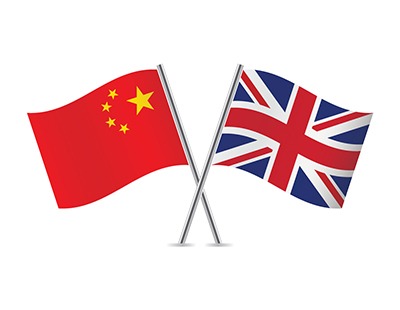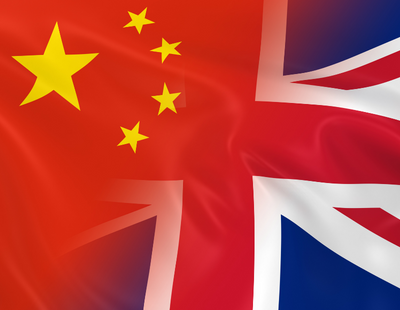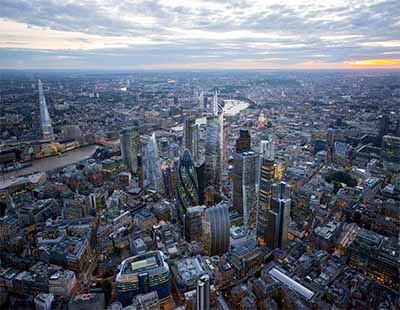The 31 October 2020 is a big day for me and my family. It is the day we fly out of London and relocate to Hong Kong. In these tumultuous times, why would we choose to leave our wider family in London to move half way across the world?
The answer is simple: to be based in China at this time is an exciting prospect - there is no better time to be in the centre of south-east Asia, building relationships with clients and working with them on deals deploying capital across the world.
Right now, the UK - and London in particular - is a focus for Chinese capital seeking a home. The Office for National Statistics (ONS) reported that in 2019 alone, £7.69 billion was invested in to London property. At the start of 2020, research from Knight Frank indicated that China remained the biggest potential investor in London real estate with over £12 billion ready to deploy - an increase of 25% on 2019.
Covid-19 may have delayed some of this investment, but these investors have not gone away. In terms of home sales, Beauchamp Estates estimates that notwithstanding Covid-19, mainland Chinese and Hong Kong buyers currently represent 15% of international sales above £1 million across prime central London and 20% of deals above £10 million.
So why is the UK the Chinese go-to destination? The reasons are multi-faceted and varied but can be boiled down to the UK’s built-in structural strengths and the current geopolitical situation. The UK is in an overseas investor’s sweet spot and like any savvy group of investors, the Chinese are looking to take advantage.
The history shared between nations inevitably impacts existing and future business relationships. Whilst Shanghai and Shenzhen are dramatically growing in importance, the fact global capital is more familiar with Hong Kong (amongst other reasons) means it is still the main financial gateway into and out of mainland China.
As a result, the close shared history between the UK and Hong Kong means it is uniquely placed to take advantage of capital flows out of China. This familiarity extends to English and Cantonese being the official languages of Hong Kong and the fact that the bedrock of the legal system of Hong Kong originates from UK common law.
UK law is renowned throughout the world for its openness, transparency and fairness. These are key tenets for any country looking to attract inward investment.
The UK benefits from other vital structural advantages - its time zone and political system. Being at the centre of the world from a time perspective gives the UK an advantage to work with investors from all over the world. The UK’s political system is relatively stable when considered over the medium to long term.
Every nation has its political wobbles but when you compare some nations and their political issues with the arguments often had in the UK parliament at Prime Minister’s Questions, full of sound and fury but signifying not a great deal, you can see why the UK is fundamentally a safe place to do business.
The British education system is also a big draw. From 2014-15 to 2018-19, the number of Chinese students in the UK grew from 89,540 to 120,385. To put this into perspective, Chinese students accounted for more than one in every three non-EU students.
It is a natural corollary that a percentage of Chinese parents will therefore enter the housing market to buy a property for their child (as demonstrated by the ONS statistics) and a reality that as these Chinese students graduate and potentially move back to China, they will seek to invest back into the UK.
Because of the structural reasons discussed above, Chinese capital has always been flowing into the UK in one form or another. These in-built structural advantages mean there is significant competition from global investors for UK assets which leads to greater liquidity and so a virtuous circle begins.
But why is there a particular influx of capital from China at this time? There are two main reasons:
-
Currency (which is linked with Brexit); and
-
US / China relations.
As recently as March this year, sterling was at 1.149 against the greenback. When you compare this to 1.716 in July 2014 or over 2 in 2007, you can see that from a timing perspective, now is a great time to invest and benefit from the weakness caused to sterling by Brexit and Covid-19.
It is election year in the US and therefore a great time for candidates to appear tough on China to deflect from troubles at home. Cue a trade war, with President Trump insisting on a rebalancing of the trade deficit and the imposition of tariffs.
On January 13 2020, the US Treasury Department issued landmark regulations to scrutinise foreign investments into critical technology firms - especially those from China. This will extend to non-controlling investments and not just majority investments and acquisitions.
Other nations have also made comments about protecting their companies at this vulnerable time from takeovers by overseas state-backed entities. As a result, the UK seems even more attractive to Chinese investors – if the US and others do not want Chinese investment, perhaps the UK does.
So what does the future hold? Huge sums have been spent by the UK government to get through Covid-19 and prop up the nation. This will need to be addressed in a way which doesn't damage investor confidence.
Can the UK afford to turn away Chinese investment in these times? If it accepts such investment, what will that mean for the ongoing relationship with US? As the issues around Huawei demonstrated, running the gauntlet of attracting investment from the second largest economy in the world whilst not alienating the world’s largest economy is going to be a difficult but essential lesson to learn for the post-Brexit UK economy.
Whatever happens, I am excited to be moving to Hong Kong, advising our clients through to the other side.
*Ciaran Londra is a Partner at Bryan Cave Leighton Paisner, an international law firm with 25 offices worldwide







.jpg)


.png)









Join the conversation
Be the first to comment (please use the comment box below)
Please login to comment